Inspirados já nos ensinamentos de Sófocles, aqui, procurar-se-á a conexão, pelo conhecimento, entre o velho e o novo, com seus conflitos. As pistas perseguidas, de modos específicos, continuarão a ser aquelas pavimentadas pelo grego do período clássico (séculos VI e V a.C).
quarta-feira, 16 de dezembro de 2020
PRIMEIROS TIROS DE VACINA DE COVID
O princípio do fim da Covid-19. Reino Unido inicia campanha de vacinação
Margaret Keenan, de 90 anos, da Irlanda do Norte, foi a primeira pessoa no mundo a receber a vacina da Pfizer/BioNTech para a covid-19 fora de um ensaio clínico, marcando o início da campanha de vacinação no Reino Unido.
JACOB KING / AP
https://sicnoticias.pt/especiais/coronavirus/2020-12-08-O-principio-do-fim-da-Covid-19.-Reino-Unido-inicia-campanha-de-vacinacao
When will you be eligible for the Covid vaccine?
By Philippa Roxby
Health reporter
Margaret Keenan, aged 90, was vaccinated at University Hospital, Coventry on Tuesday morning
The NHS has begun the biggest mass vaccination campaign in its history, with a jab that protects against Covid-19.
The Pfizer-BioNTech vaccine was found to be safe and effective by the UK medicines regulator and has been approved for mass use in over-16s. Margaret Keenan was the first person in the world to receive a dose.
Two other vaccines - developed by Oxford-AstraZeneca and Moderna - could also be approved soon and ready for widespread use.
But how will the vaccine be rolled out, and can everyone take it?
Who will get the vaccine first?
Broadly, vaccines are being given to the most vulnerable first, as set out in a list of nine high-priority groups, covering about a quarter of the UK population.
They are thought to represent 90-99% of those at risk of dying from Covid-19.
Residents in care homes for older adults and their carers
80-year-olds and over and frontline health and social care workers
75-year-olds and over
70-year-olds and over and clinically extremely vulnerable individuals
65-year-olds and over
16 to 64-year-olds with serious underlying health conditions
60-year-olds and over
55-year-olds and over
50-year-olds and over
People aged over 80 in hospital, frontline health staff and care home workers have been the first to get the jab at 70 designated hospitals hubs across the UK.
As soon as there is clarity on how smaller batches of the vaccine can be transported safely at ultra-cold temperatures of -70C, care home residents will follow - probably from 14 December.
People will be vaccinated twice - around 21 days apart - and full immunity starts seven days after the second dose.
The second phase of vaccination will focus on the rest of the population, mainly the under-50s, who are much less likely to be ill with Covid-19.
Teachers, transport workers and the military could prioritised at that point, but more data on how well the vaccines are working will be needed before that decision is made.
It could be well into 2021 before this phase begins, by which time more Covid vaccines could be approved for use.
How many vaccine doses are there?
The UK is initially expecting delivery of 800,000 doses - enough for 400,000 people - which will be shared out fairly across the four UK nations.
in Scotland, which is receiving 65,000 doses, vaccinators were the first to get the jab
in Northern Ireland, a nurse received the first of 25,000 doses
in Wales, 6,000 doses will be administered from special centres by the end of the week
in England, 50 hospitals are storing and administering the first vaccines
Although the UK was planning to have 10 million doses of the Pfizer jab before the end of the year, it is likely to receive just four million - enough for two million people.
The British-made Oxford-AstraZeneca vaccine is also expected to be approved by the UK regulator soon, and millions more doses of that could be made available quickly because it can be stored at normal fridge temperatures.
Where will I get a vaccine?
You'll be invited to book an appointment to get a vaccine as soon as it's your turn, probably by letter.
Vaccinations will take place:
in hospital hubs - about 70 have been set up across the UK so far
in care homes, when the logistics are confirmed
in thousands of GP surgeries as stocks become available
in sports stadiums and conference centres acting as major vaccination hubs next year
The NHS is recruiting 30,000 volunteers to help with the rollout, including lifeguards, airline staff and students - who will be trained to give the jabs.
About 200 GP surgeries will offer vaccinations to the over-80s first.
The programme will then be expanded out to more than 1,000 surgeries - with each local area having a designated site.
How will the new Pfizer vaccine work?
Will everyone be vaccinated?
The eventual aim is that as many people as possible over the age of 16 receive a Covid-19 vaccine.
It won't be compulsory though - no other vaccines in the UK are - as experts say this wouldn't help create confidence in the vaccine.
The government has so far ordered seven different types of vaccine and expects to receive 355 million doses, including 100 million of the Oxford-AstraZeneca one.
If everyone needs two doses, that would certainly be enough for every adult in the UK.
What you need to know about vaccine safety
What about people with allergies?
Anyone who has previously had a significant allergic reaction to a medicine, food or another vaccine should not have the Pfizer-BioNTech jab.
This means, for example, anyone who carries an adrenaline pen.
The UK regulator issued the advice after two NHS workers who got the jab on the first day of UK roll-out had allergic reactions soon after getting their initial dose. They received treatment quickly and are recovering well.
A severe allergic reaction - known as anaphylaxis - is a very rare side-effect with any vaccine, but it can happen in those at risk. Most people, however, will not be affected in any way.
The MHRA says anyone due to receive their vaccine should discuss any medical history of serious allergies with their healthcare professional beforehand.
I'm pregnant - will that affect when I'm vaccinated?
For precautionary reasons, the official advice is that you should wait until after the birth of your baby and after you have finished breastfeeding before having the jab.
If you are planning to get pregnant in the next three months, you should also delay your vaccination.
This is because the vaccine was not tested on pregnant women during the trials - not because of any safety concerns with the vaccine.
Pregnant women are likely to be low down the list of priority groups anyway because of their age, and may only be offered a vaccine in the second phase in 2021.
Can I pay to be vaccinated sooner?
No - this vaccine is being rolled out free to people via the NHS.
You can't jump the queue by paying for it, but there should be plenty of vaccine to go round.
Should I leave a gap between getting the flu and Covid vaccines?
If you're eligible for a flu vaccine, you should get it as soon as possible, particularly if you will also be in a high-risk priority group for a Covid jab.
Having both illnesses at once this winter could be dangerous.
At its last meeting, the JCVI recommended leaving at least seven days between the vaccines.
Flu jab 'more important than ever' this winter
Your Questions Answered: Will I need a vaccine passport?
Covid vaccines: Who decides if they are safe?
https://www.bbc.com/news/health-55045639
*
First US health workers vaccinated on live TV: ’I’ve been waiting for this day forever'
The first US health workers to receive the COVID-19 vaccine at a New York hospital speak of their trust in the science behind the Pfizer-BioNTech shot.
https://www.youtube.com/watch?v=B_9tBJtwGog
NBC Nightly News Broadcast (Full) - December 14th, 2020 | NBC Nightly News
First Covid vaccine given in U.S. as distribution begins, U.S. surpasses 300,000 deaths, and Electoral College votes to make President-elect Biden win official.
https://www.youtube.com/watch?v=1ZE8E8vv48w
Assinar:
Postar comentários (Atom)
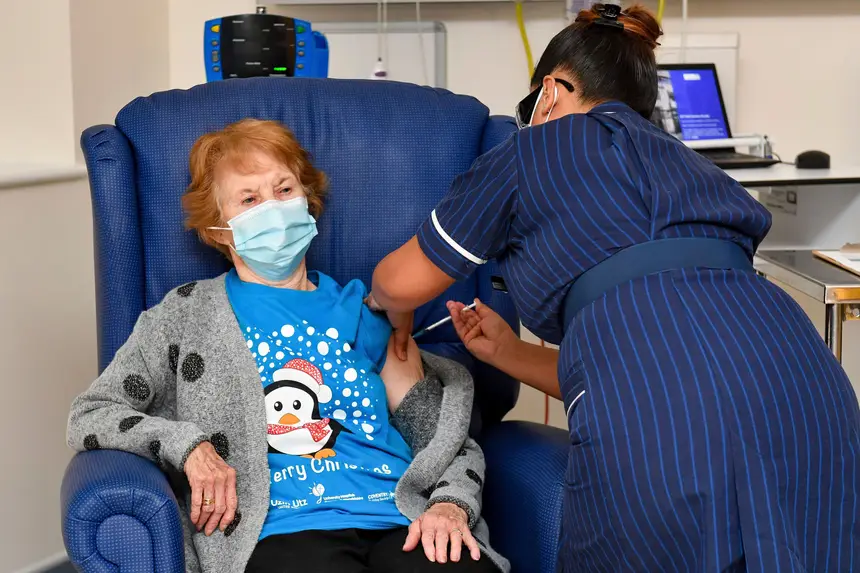
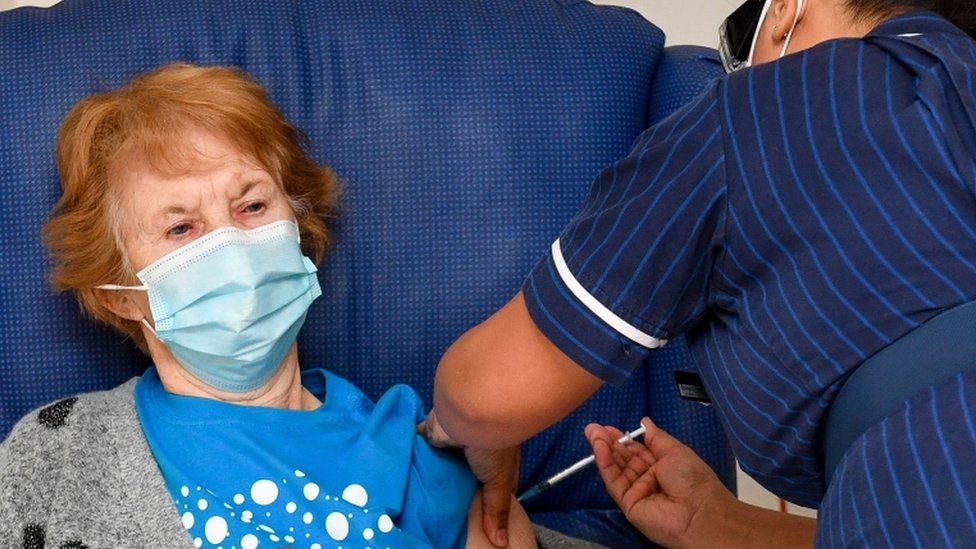
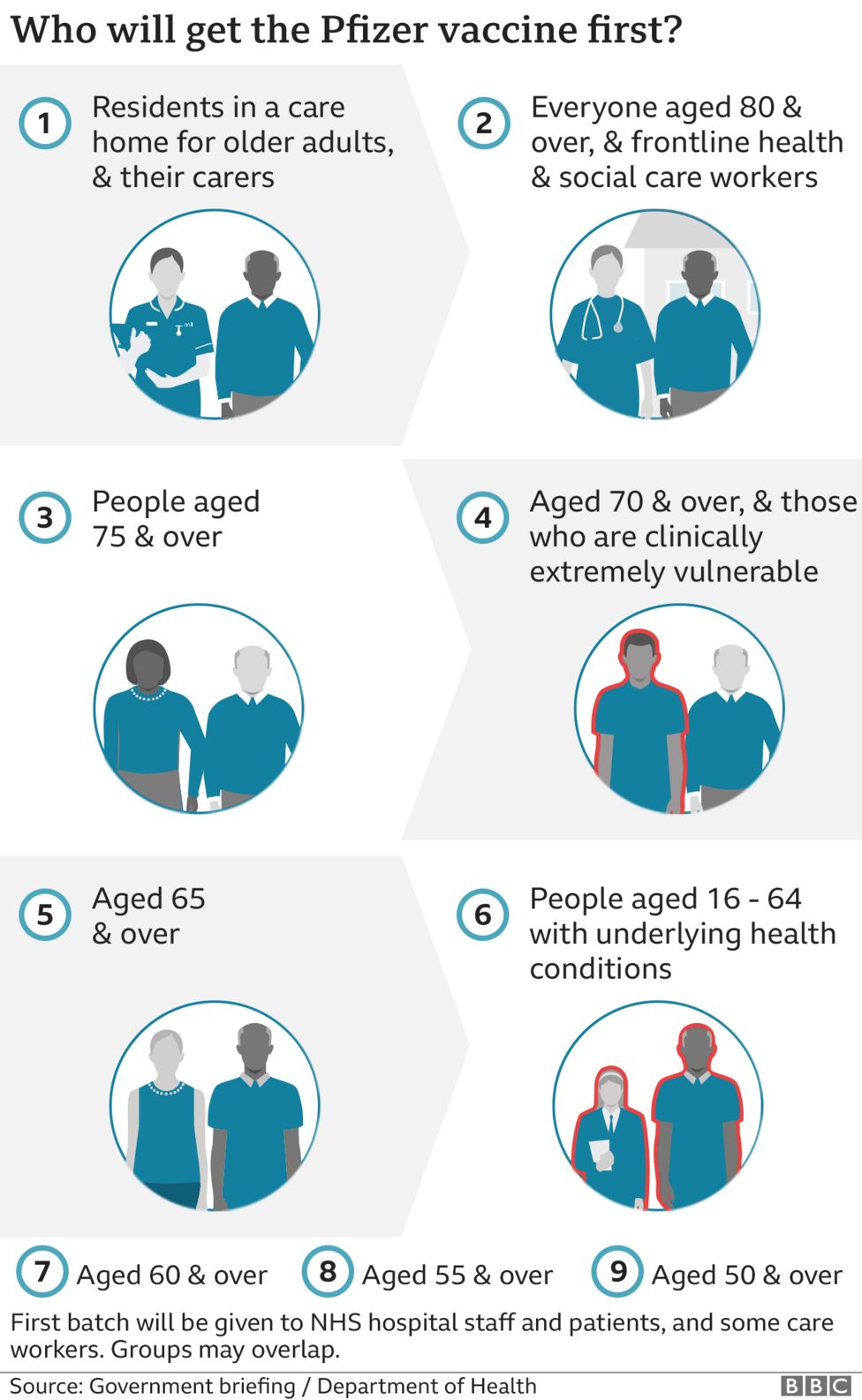
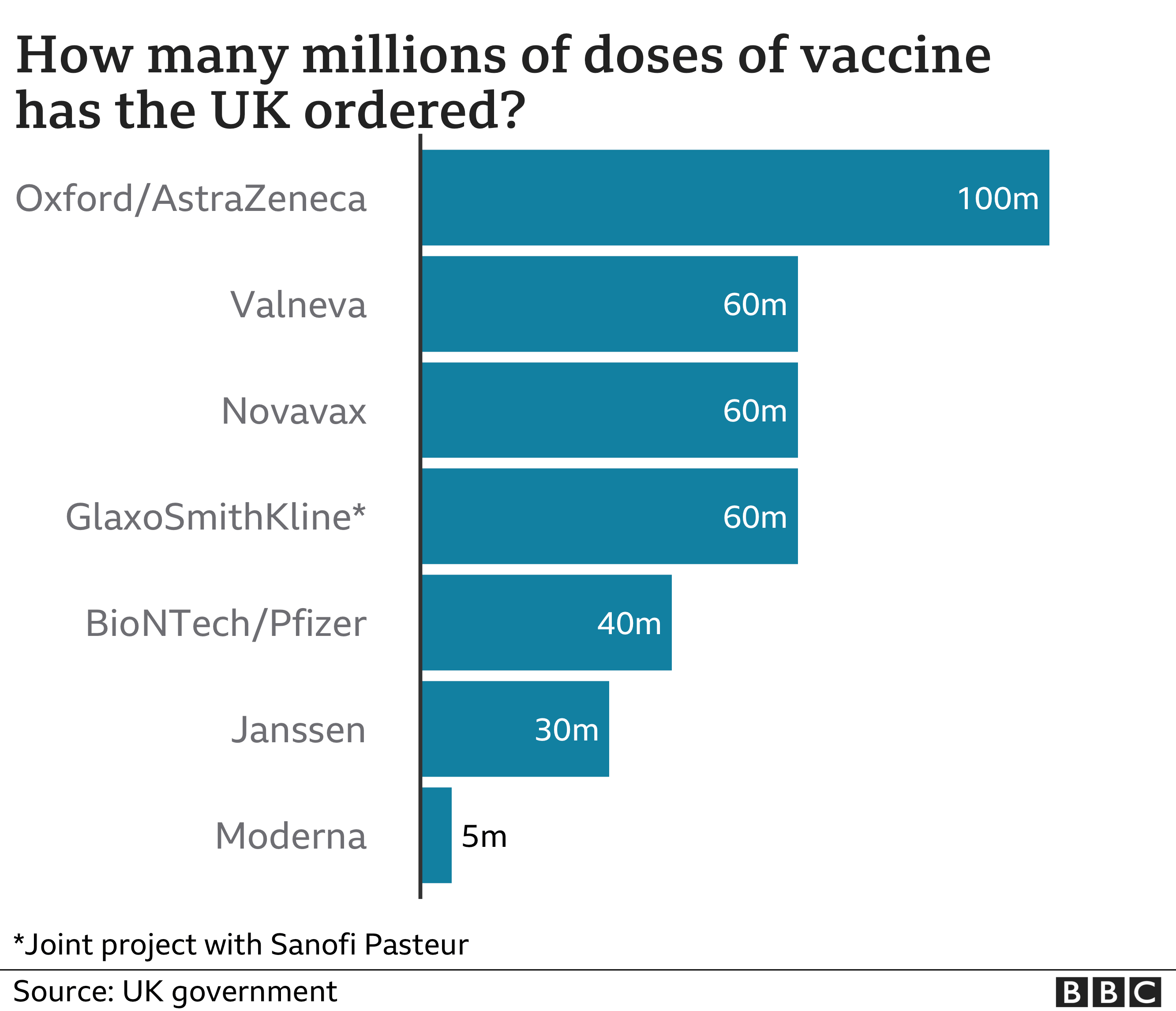
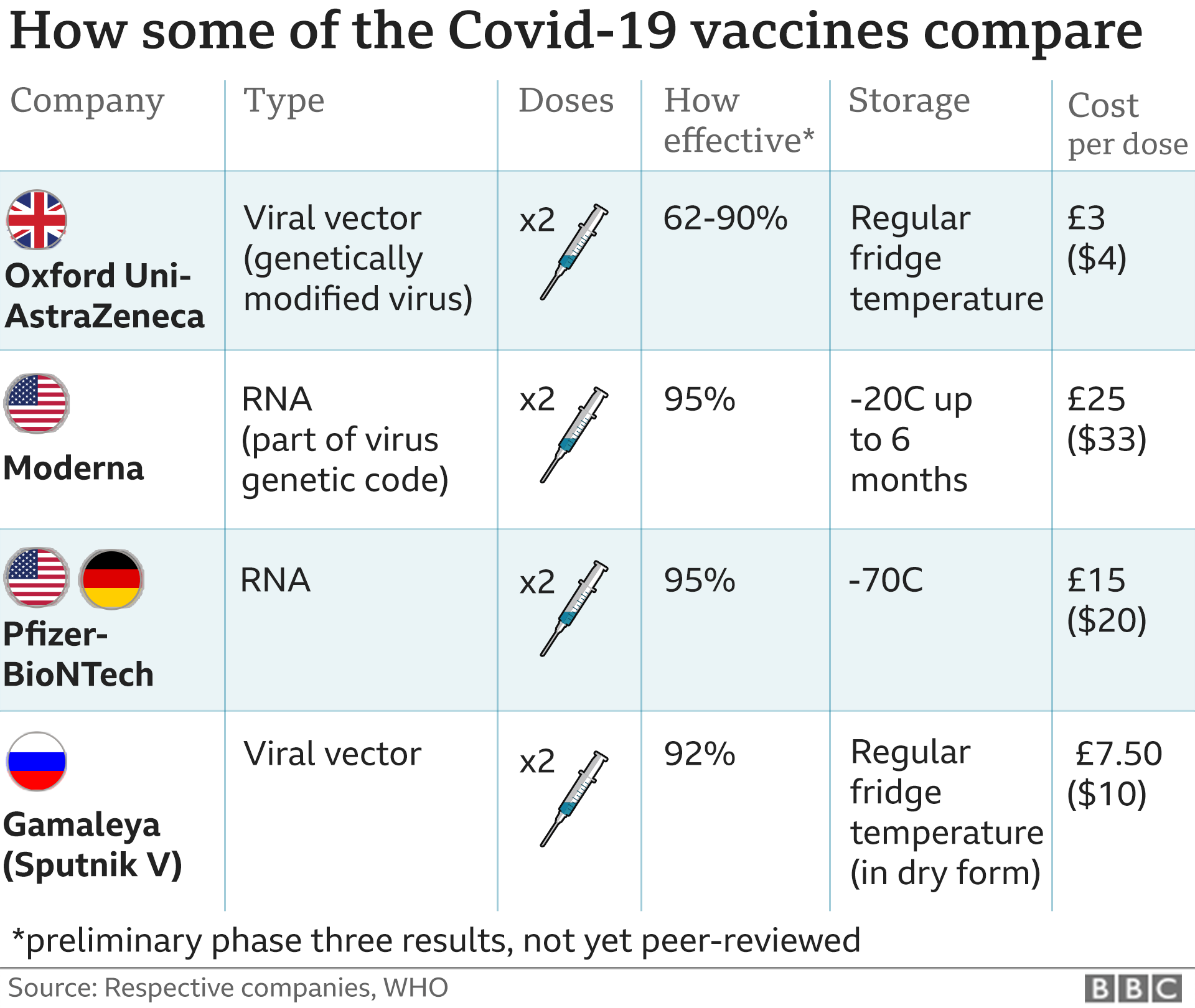
Nenhum comentário:
Postar um comentário